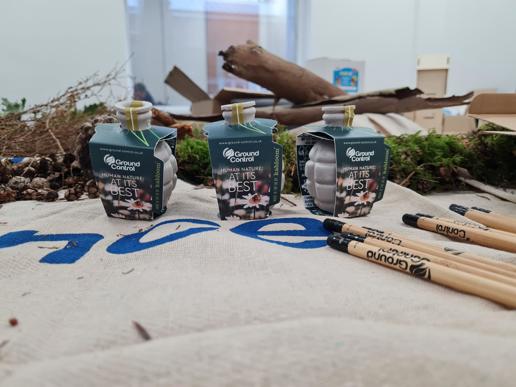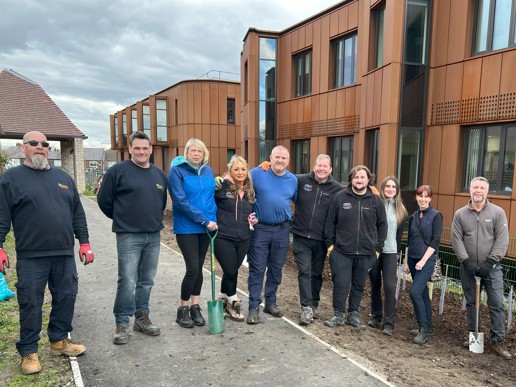Pest Prevention: How to Reduce the Risk of Infestations on Your Property

With the recent bin strike in Birmingham leaving rubbish uncollected, there’s been a surge in pest sightings across the city. Overflowing waste is attracting rats and increasing the risk of infestations, both in residential and commercial areas.
To help you stay ahead of the problem, we spoke to James Olphin, Senior Contract Manager at Ground Control for the West Midlands, for his expert advice on ethical, proactive pest prevention. He began by sharing simple actions you can take to prevent pests on-site.
10 simple ways to prevent pests on site
- Inspect your car park, gardens, and outbuildings
Start with a quick visual inspection of your site. Look out for gaps or any areas that may provide shelter or food. - Secure all food sources
Rodents are opportunistic feeders. Ensure that all food sources are sealed and stored securely. This includes pet food, animal feed, and all food waste. - Manage waste responsibly
Always bag waste and place it in bins with tight-fitting lids. Avoid leaving bags on the ground, and keep surrounding areas, such as car parks and storage yards, clear of litter and fallen leaves. - Trim overhanging vegetation
Trees and shrubs growing close to buildings can act as bridges for rodents. Keep foliage well-trimmed and away from walls, windows, and roofs. - Maintain hedges and overgrown areas
Unattended vegetation such as brambles, hedgerows, and long grass can provide ideal shelter for rats. Regular cutting (outside of nesting season) will reduce hiding spots and discourage pests from settling. - Cover and cap drains
Rodents frequently use drainage systems to move around. Ensure all drains are properly covered, and cap off any disused pipes. - Rethink your site layout
Take a step back and assess your setup. Placing bins next to open drains or near access points like windows or sheds can create an easy route indoors for pests. - Seal entry points
Rats and mice can squeeze through incredibly small gaps. Inspect your property for holes or cracks around doors, windows, vents, pipework, or eaves. Use wire wool and quick-drying cement to fill them effectively. - Know the signs of infestation
Look out for droppings (especially near bins or storage areas), gnaw marks, footprints in dusty areas, or nests made from shredded materials. - Review your pest control contract
Is your current pest control service meeting your needs? Make sure you're receiving actionable recommendations, as well as additional services such as remote monitoring, trapping, and proofing solutions.
Why Is Pest Prevention So Important?
Rodents aren’t just a nuisance, they can be a serious health and safety risk:
- Disease spread: Rats and mice can carry diseases like Salmonella and Listeria, which are spread through urine and droppings, especially in food preparation areas.
- Agricultural impact: Pests can contaminate animal feed and cause stress to livestock and poultry.
- Property damage: Rodents gnaw constantly to keep their teeth in check. This includes wood, metal, cinder blocks, wires, and pipes—potentially leading to electrical fires, flooding, and costly repairs.
- Rapid breeding: A single pair of rats or mice can quickly multiply, turning a minor issue into a full-blown infestation.
Ethical, Professional Pest Control from Ground Control
At Ground Control, we prioritise environmentally responsible pest management, with all services delivered by BPCA/RSPH Level 2 qualified professionals. Our approach focuses on prevention first, minimising risk to both people and the environment.
Need support with a pest issue or want to review your current prevention strategy?
Get in touch today and speak to one of our pest management experts.
Speak to us about pest prevention and management
Get in touch
A boost for staff and nature at Southern Water

Ground Control plans ambitious expansion as it announces senior management changes





